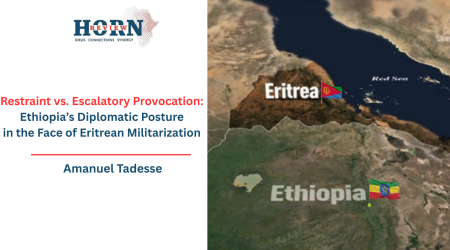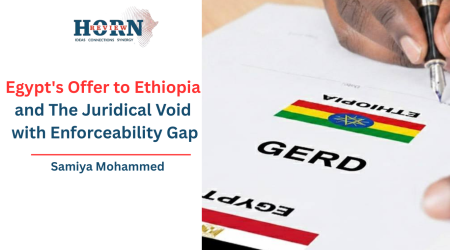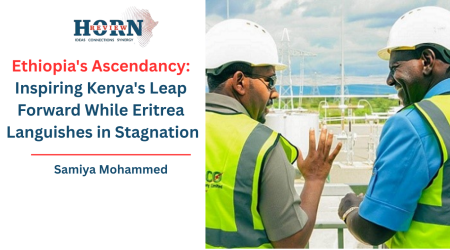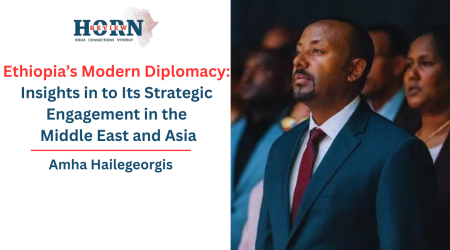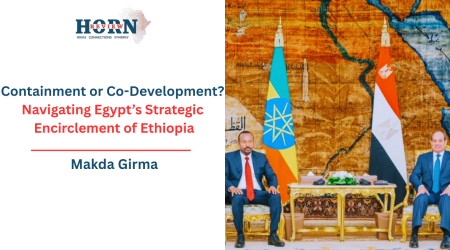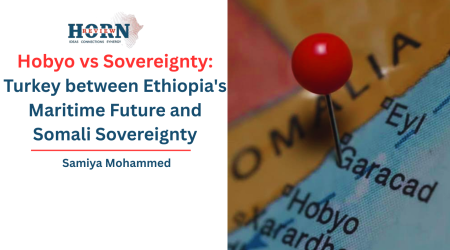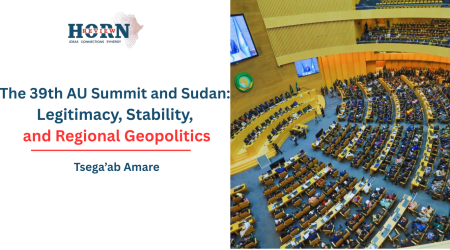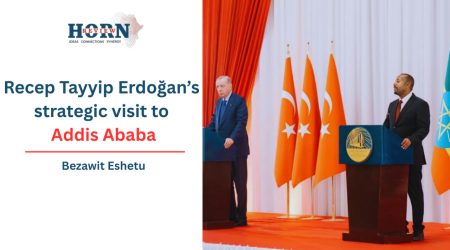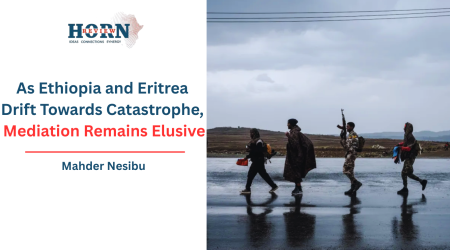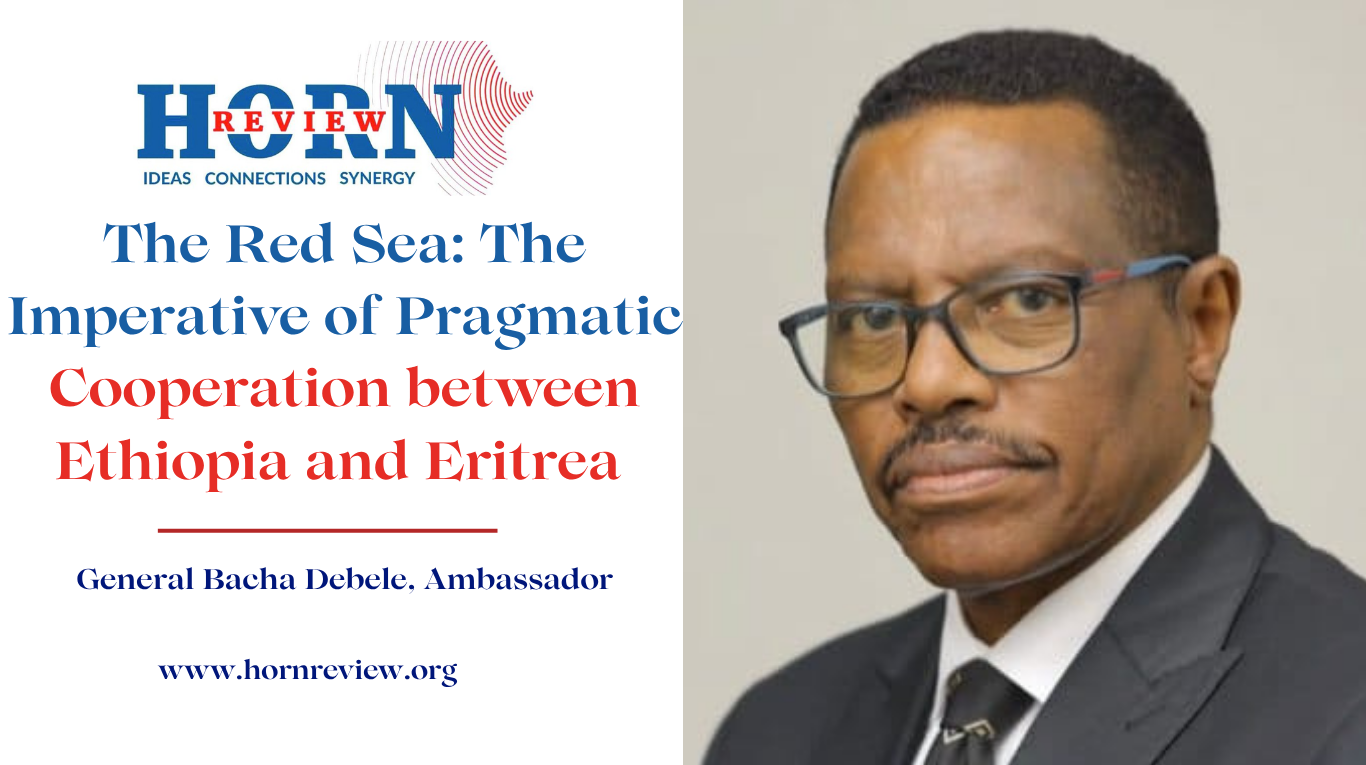
31
Oct
The Red Sea: The Imperative of Pragmatic Cooperation between Ethiopia and Eritrea
By General Bacha Debele, Ambassador
The Red Sea remains one of the most decisive corridors in the global maritime and geopolitical architecture. It is a lifeline of commerce, strategy, and security – a theater where the interests of regional and international powers converge. For Ethiopia, historically a coastal nation unjustly deprived of its maritime access in 1993, the Red Sea represents not a nostalgic pursuit but an existential imperative. Maritime access is indispensable to Ethiopia’s sovereignty, economic dynamism, and regional influence. The question, therefore, is not whether Ethiopia should engage the Red Sea, but how it does so – through pragmatic, mutually beneficial cooperation with its neighbors, particularly Eritrea.
Having observed Eritrea both before and after its secession, it is clear that its trajectory under President Isaias Afwerki has been one of unfulfilled promise and self-imposed stagnation. The spirit of statehood that once inspired Eritrea’s struggle has been subverted by an entrenched system of personal rule. Governance has been supplanted by autocracy; national institutions have been hollowed out, and economic progress has been arrested. A nation endowed with geographic advantage and human resilience has been reduced to a closed, underdeveloped state – a political relic preserved in inertia rather than a dynamic actor shaping its destiny. The Eritrean state today bears resemblance to a static museum – preserved, but not progressing; sovereign in name, yet stagnant in substance.
This paralysis is rooted in the personalization of power. The conflation of the state with a single individual has eroded national purpose and public trust. Citizens are compelled to equate patriotism with obedience to a ruler rather than allegiance to the nation itself. The emergence of a personality cult – embodied by the so-called “Wedi Afom” radicals – distorts the very principles for which Eritreans once fought. This transformation of a “liberation” movement into a totalitarian system is a betrayal of the sacrifices that secured Eritrea’s secession.
The history of Eritrea’s separation from Ethiopia itself warrants sober and continuous reflection, particularly in light of evolving regional realities. The manner and context of the secession, shaped by internal conflict and external pressures, remain a matter of unresolved legal and moral scrutiny. The loss of Ethiopia’s historical ports – such as Assab, integrally tied to its economic system – continues to carry strategic and generational weight. In his address to Parliament on October 28, 2025, Prime Minister Abiy Ahmed rightly underscored the absence of any legal documentation formally legitimizing Ethiopia’s exclusion from the Red Sea, inviting Eritrea to provide evidence if such exists. This challenge must not be misconstrued as a threat, but as a call for clarity – a demand for historical truth as the foundation for future cooperation.
Ethiopia, despite historical grievance, has consistently upheld the principles of sovereignty and peaceful coexistence. It harbors no intent to violate its territorial integrity – particularly over territories it recognises as legitimately obtained by Eritrea, not just maintained. Yet such respect for sovereignty has never been reciprocated by Eritrea. Now therefore, accountability should no longer be optional; it has become a strategic necessity. President Isaias Afwerki cannot continue to recklessly undermine the sovereignty of Ethiopia and its neighbours through the orchestration and arming of insurgent groups, the facilitation of illicit trafficking in persons and weapons, and the conduct of transnational financial crimes. Such actions stand in direct contradiction to the principles of sovereignty he so often invokes. In reality, it is President Isaias himself who has eroded Eritrea’s sovereignty – through policies that isolate the nation, compromise its legitimacy, and subject its people to perpetual hardship.
Nonetheless, the future of both nations lies not in confrontation but in cooperation. Geography has bound Ethiopia and Eritrea in perpetuity; no political decision can alter that reality. Their destinies are interdependent. The Red Sea, rather than serving as a boundary of division, must become a conduit of mutual progress. Joint ventures in port development, logistics, and maritime trade can transform the Horn of Africa into a hub of prosperity and stability. The 2018 rapprochement proved that reconciliation yields tangible dividends: the reopening of borders rekindled economic exchange and human connection. Where trust prevailed, both nations benefited. The lesson is unequivocal – progress follows peace, and peace follows dialogue.
For Eritrea, strategic realism must replace ideological isolation. A transactional, pragmatic approach to diplomacy offers a route out of economic paralysis and diplomatic marginalization. For Ethiopia, safeguarding national interests through cooperative frameworks remains the path of choice – one that prioritizes shared prosperity over unilateral assertion. Both nations stand to gain more through partnership than through estrangement. Without genuine engagement with Ethiopia, Eritrea risks further erosion of legitimacy, cohesion, and relevance in an increasingly integrated region.
Ultimately, the Red Sea question transcends geography. It is a test of leadership, vision, and the capacity of nations to rise above grievance toward collective advancement. Historical injustices must be addressed, but not through hostility. They must be resolved through principled dialogue, mutual respect, and a shared understanding of regional destiny. Ethiopia seeks not confrontation, but fairness. It seeks not dominance, but dignity. It seeks not conflict, but cooperation grounded in truth and strategic balance.
Yet, it remains an open question whether such cooperation is attainable under Eritrea’s current posture. The regime’s lack of diplomatic sophistication, its rigid and outdated political maneuvering, and its habitual role as a proxy instrument for Ethiopia’s adversaries continue to obstruct genuine dialogue. Rather than exercising sovereign agency in pursuit of its national interest, Eritrea’s leadership has too often chosen subservience to external agendas and hostility toward its natural partner. This pattern consolidates the perception that Eritrea’s conduct is incompatible with the norms of constructive statecraft and regional stability.
Ethiopia, for its part, has demonstrated maximum restraint in the face of sustained provocation. It has chosen the path of patience, dialogue, and regional responsibility, even when tested repeatedly. However, as repeatedly stated by Ethiopia on its letter to the United Nations, restraint cannot be infinite. The burden of maintaining stability cannot rest on one nation alone while another persists in undermining it. Whether this course of disciplined restraint will endure indefinitely is a question only time will answer – and the answer will depend, above all, on the choices made by Eritrea’s leadership.
The Horn of Africa now stands at a defining moment: between the perpetuation of distrust and the emergence of a new order based on pragmatic cooperation. Should wisdom prevail, the Red Sea can become a shared artery of prosperity. Should recklessness continue, the region will remain hostage to the ambitions of those who mistake obstinacy for strength. The choice, and the consequence, belong equally to all – but history will judge those who refuse to evolve.
Authors Bio
General Bacha Debele is a senior military leader and Ethiopia’s Ambassador, with decades of service in national defense, strategic affairs, and regional diplomacy. He has held key command and advisory positions within the Ethiopian National Defense Forces and continues to contribute to national security and foreign policy deliberations.

